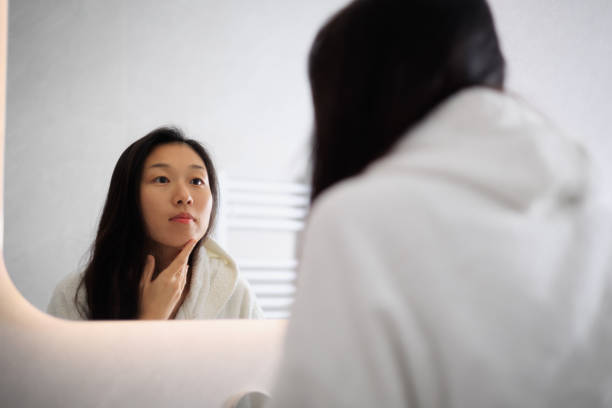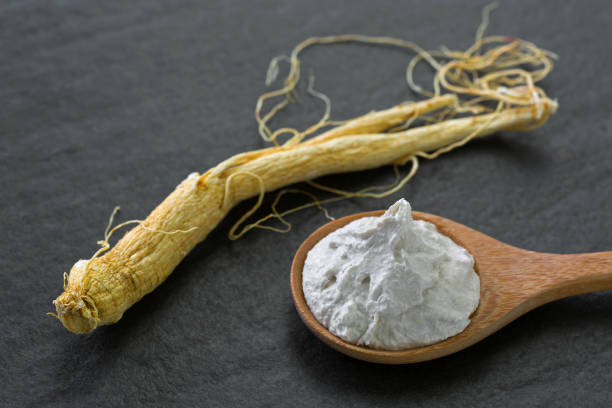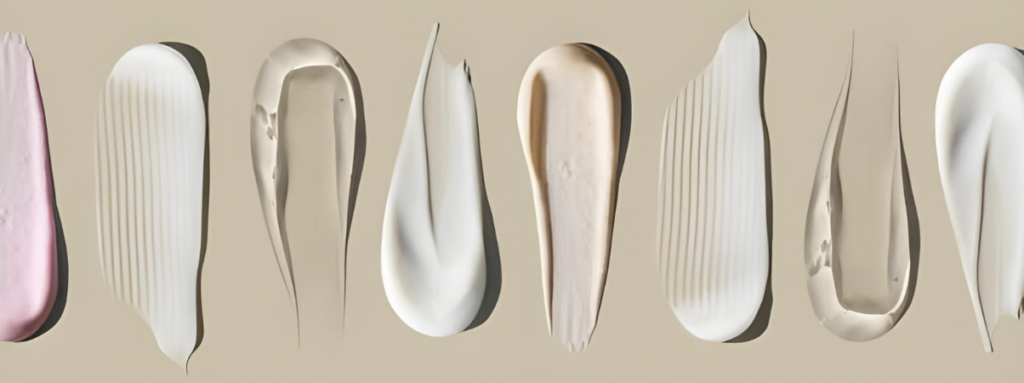Skin Care
Debunking the Myths of Korean Skincare
The global interest in Korean skincare has reached new heights, with fans hailing it as the pinnacle of beauty innovation and efficacy. However, despite the buzz around this skincare revolution, various myths and misconceptions have emerged regarding Korean skincare, frequently overshadowing the reality about its ideas and methods.
In this article, we will dispel the myths surrounding Korean skincare, uncovering the reality behind the complicated routines, exotic substances, and alleged amazing outcomes. Join us as we debunk the myths surrounding Korean skincare, from the legendary “10-step routine” to the efficacy of popular substances like snail mucin and bee venom. With insights and clarity, readers will get a better grasp of the facts underlying this beauty craze, allowing them to make informed skincare decisions and embrace a more nuanced approach to obtaining glowing, healthy skin.

Debunking Common Myths
Korean skincare has grown in popularity in recent years, but there has also been a lot of misunderstanding about it. Here are some prevalent myths regarding Korean skincare that must be debunked.
The 10-Step Routine is Mandatory
One of the most common myths about Korean skincare is that you must follow the 10-step process to get results. While the 10-step program may be beneficial for certain people, it is not required. The key to proper skin care is figuring out what works for your skin type and sticking to it. Some people may need only a few steps in their regimen, while others may require more.
Korean Skincare is Only for Women
Another one of the prevalent myths is that Korean skincare is exclusively for women. This is completely untrue. Men can benefit equally from a good skincare routine as women. In fact, many Korean skincare firms offer products exclusively for men’s skin.
All Korean Products Contain Snail Mucin
Snail mucus is a prominent ingredient in Korean skincare, but not all products contain it. Snail mucus is well-known for its moisturizing and anti-aging effects, but Korean skincare products also include a variety of other useful substances.
Korean Skincare Guarantees Instant Results
One common myth regarding Korean skincare is that it provides rapid effects. While certain treatments may produce rapid results, most skincare products require time to function. Consistency is essential in skincare, and it may take several weeks or even months to see meaningful benefits.
In conclusion, there are numerous myths about Korean skincare that must be dispelled. It’s critical to conduct your study and discover what works best for your skin type. Remember that skincare is a journey that requires time and consistency to provide results.

Understanding Skin Types and Concerns
The Importance of Identifying Your Skin Type
Before going into the world of Korean skincare, it is critical to grasp the significance of determining your skin type. A proper skincare program can help you achieve healthy, beautiful skin. However, using the wrong products can cause a variety of skin issues, including dryness, acne, and irritation.
The four main skin types are oily, dry, combo, and normal. Each skin type necessitates unique skincare products and routines. For example, persons with oily skin should use non-comedogenic, oil-free products to avoid pore clogging, which can contribute to acne breakouts. Dry skin, on the other hand, should be moisturized to avoid flaking and irritation.
Addressing Different Skin Concerns
Korean skincare solutions are designed to address a variety of skin issues, including acne, sensitivity, and dryness. Here are some common skin issues and how Korean skincare products can help:
Acne: Korean skincare products, such as toners, serums, and masks, contain components like salicylic acid and tea tree oil, which can help prevent and treat acne.
Oily skin: Korean skincare products including oil-free moisturizers and mattifying toners can help reduce excessive oil production.
Sensitive skin: Korean skincare products like gentle cleansers and soothing masks can help to relax and soothe sensitive skin.
Acne-prone skin: Korean skincare products including exfoliating toners and spot treatments can help prevent and treat breakouts.
Dry skin: Korean skincare products like hydrating toners and moisturizing masks can help hydrate and nourish the skin.
To summarize, recognizing your skin type and concerns is critical for having healthy, bright skin. Korean skincare products can help address a variety of skin conditions, but it is critical to select the appropriate products for your skin type.

Key Ingredients and Their Benefits
When it comes to Korean skincare, the ingredients are essential for achieving healthy, beautiful skin. Here are some important substances and their benefits:
Natural Ingredients and Skin Nourishment
Korean skincare products frequently use natural substances to nourish the skin. One such component is green tea. Green tea is well-known for its antioxidant properties, which protect the skin from free radical damage. It also contains anti-inflammatory qualities, which can aid in relieving irritable skin.
Ginseng is another natural element found in many Korean skincare products. Ginseng is said to have anti-aging qualities and can help increase skin suppleness. It also has brightening properties, making it a popular ingredient in cosmetics that aims to level out skin tone.
Vitamins and Acids for Healthy Skin
Vitamins and acids are also frequent ingredients in Korean skincare products. Vitamin C is a popular component since it brightens and evens out skin tone. It also contains antioxidants, which help protect the skin from environmental harm.
Niacinamide is another vitamin that is widely used in Korean skincare products. It possesses anti-inflammatory characteristics that can help soothe inflamed skin, as well as the potential to improve skin texture and minimize the appearance of fine lines and wrinkles.
Acids are also often employed in Korean skincare products. Hyaluronic acid is a desirable component because it hydrates the skin and improves its texture. Salicylic acid is another acid that is widely used in Korean skincare products. Its ability to exfoliate the skin and unclog pores has made it a popular ingredient in acne-treatment treatments.
Overall, Korean skincare products frequently include a mix of components to promote healthy, beautiful skin. Individuals who understand the benefits of these components can make informed judgments when selecting skincare products that are appropriate for them.

Myth vs. Reality: Skincare Practices
The Truth About Exfoliation
One of the most popular myths in Korean skincare is that exfoliating the skin more frequently yields greater results. In actuality, excessive exfoliating can harm the skin’s barrier, causing irritation, dryness, and even outbreaks.
Experts recommend exfoliating once or twice a week to eliminate dead skin cells and increase cell turnover. It is also critical to select the appropriate exfoliant for your skin type and avoid using strong scrubs or equipment that can create micro-tears on the skin.
Misconceptions About Makeup and Skincare
Another Korean skincare myth is that cosmetics can be used instead of a proper skincare routine. While some makeup products, such as BB cream or foundations, might give some sun protection and hydration, they cannot replace the advantages of a regular skincare regimen.
In fact, applying makeup for an extended period of time or failing to properly remove it can clog pores and cause breakouts. It is recommended that you constantly cleanse your skin before wearing makeup and use gentle, non-comedogenic products that will not irritate or create acne.
Overall, it is critical to distinguish between facts and myths in terms of Korean skincare procedures. Understanding the truth about exfoliation and makeup’s function in skincare allows you to develop an effective, gentle routine that is personalized to your skin’s specific needs.

Cultural Impact and Global Influence
Korean skincare has become a global sensation in recent years, with popularity increasing all over the world. This boom in popularity can be due to the growth of Korean cosmetic products, which are noted for their inventive and effective formulae.
The Rise of K-Beauty in the West
K-beauty has a devoted following in the West, with Korean skincare and makeup brands gaining popularity. The West has fallen in love with Korean beauty trends, and it’s easy to see why. Korean skincare products are distinguished by their unique components, such as snail mucin and bee venom, which are thought to offer anti-aging and healing effects.
Korean cosmetic products have grown in popularity due to their affordability. Many K-beauty products are competitively priced, making them available to a larger audience. This accessibility has helped K-beauty become a global phenomenon, with people from all walks of life embracing Korean skincare products into their daily regimens.
Social Media and Korean Skincare Trends
Social media has contributed significantly to the emergence of K-beauty. Instagram and YouTube have helped K-beauty gain traction, with influencers and beauty bloggers sharing their passion for Korean skincare products. This exposure has contributed to a buzz surrounding K-beauty, with individuals keen to check out the latest Korean skincare techniques.
Seoul, South Korea’s capital city, has become a K-beauty hotspot, with many foreigners visiting to sample the latest beauty trends. The popularity of K-beauty has also resulted in an increase in the number of Korean beauty stores appearing around the world, making it easier for individuals to obtain K-beauty items.
Finally, K-beauty has a significant cultural and global impact. K-beauty’s rise has been propelled by creative and effective products, low prices, and social media exposure. As K-beauty grows in popularity, it is probable that more people will incorporate Korean skincare products into their regular regimens.
Trusted Health, Wellness, and Medical advice for your well-being


